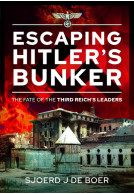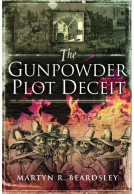Spanish Republicans and the Second World War (Hardback)
Republic Across the Mountains
Imprint: Pen & Sword History
Pages: 312
Illustrations: 30 black and white illustrations
ISBN: 9781399004510
Published: 2nd July 2021
(click here for international delivery rates)
Order within the next 10 hours, 37 minutes to get your order processed the next working day!
Need a currency converter? Check XE.com for live rates
| Other formats available - Buy the Hardback and get the eBook for £1.99! | Price |
|---|---|
| Spanish Republicans and the Second… ePub (4.8 MB) Add to Basket | £6.99 |
Spanish Republicans and the Second World War tells the stories of the 500,000 Spanish Republicans that fled across the Pyrenees in 1939 as Catalonia fell to Franco’s victorious army in the final weeks of the Civil War. Many of the exiles played an active part in the Second World War. Some joined the French and British armed forces and saw action in various theatres including Africa and Europe (both in 1940 and after D-Day).
In August 1944, Spanish Republicans in the La Nueve Company of General Leclerc’s Deuxième Blindée were the first Allied troops into Paris during the liberation of the French capital. Those that had remained in Vichy France were active in the early days of the French Resistance, and Republican Maquis also played a significant part in the liberation of the south-west of France in 1944.
Those who fought the Axis troops in Spain during the Civil War and then again in France assumed that once the Allies had defeated the Nazis, they would launch a military campaign to overthrow Franco’s government in Spain. In October 1944, a force of thousands of Spanish Maquis took part in Operación Reconquista, the invasion of the Valley of Aran on the Spanish side of the Pyrenees. Their declared aim was to trigger a popular uprising and force the Allies to intervene against Franco’s dictatorship.
Whitehead also examines the role of the Spanish volunteers of the División Azul who swore an oath of allegiance to Hitler and fought with the Wehrmacht on the Eastern Front; the role of the master double-agent Garbo, who played a crucial part in the success of D-Day; the strategic importance of Gibraltar; and the activities of the British diplomatic corps and secret services in resisting Hitler’s plans to invade the Iberian Peninsula.
In a nutshell, this book is about Spanish Republicans having to fight against Fascism more or less on their own as the British and Americans decided not to help their cause. The book relies a lot on highlighting the stories of everyday people and their fight. This was a very good book, well informed and detailed in views and opinions. But what also really sells the book in its content is the comprehensive bibliography at the back of the book, if you want to learn more about the subject you couldn’t go wrong with following the suggestions here. I must admit this part of WW2 wasn’t one of my strongest points, but I can say that I have really enjoyed learning about the Spanish cause. A book I would say would appeal to those wanting to improve their WW2 knowledge, certainly one for those improving on their basic knowledge.
UK Historian
Read the full review here
"An interesting account of one of the least explored aspects of WW2."
Edward James - Historical Novels Review
This is an interesting and compelling book which sheds important light on the way the Spanish Civil War linked to the Second World War through the actions of highly motivated and tough men who had survived one war and sought to further their cause in another, often with tragic consequences. Recommended.
David Barras - Western Front Association - Northumberland branch
Rating: 5 out of 5 stars
NetGalley, Maria Cambra Brown
A brilliant thoroughly researched book on a little known subject (which is not saying much, since anything to do with Spain is virtually ignored within the Anglosphere). The fate of the defeated Spanish Republicans following the Spanish Civil War. Many died in Nazi concentration camps. A few formed their own battalions within the French resistance, well known for their ferocity and resourcefulness. Some became master spies or the parents of outstanding citizens and artists. Even Churchill recognised that through no fault of their own, Spanish Republicans, who were, by default, supporters of democracy, were among the most hard done by cohorts during the Second World War.
Well worth a read if you are interested in the interstices of contemporary European history.
Rating: 5 out of 5 stars
NetGalley, Jean Luc Estrella
A compelling overview of the political consequences of the " Retirada" and the role played by the refugee community in exile on the other side of the Pyrenees Mountains in France after 1939. I live in Figueres and I grew up in Perpignan in the 70s surrounded by many eyewitnesses of the Republican debacle and its aftermath and this solid and well researched study was a poignant journey into my family's history and its fight against fascism on both sides of the border.
Highly recommended and a must read for anyone interested by the Spanish Civil War.
Spanish Republicans and the Second World War is a useful addition to the library of books about the Spanish Civil War and its consequences. It balances the broad outline of what happened with the activities of individual men and women who were determined to carry on the fight to overthrow fascism, no matter that circumstances often seemed to be against them. It’s clearly written, has extensive notes and a bibliography. It tells an ultimately unhappy story in terms of dreams of freeing Spain from tyranny being dashed when Britain and America backed away from intervening. But it is inspiring in drawing attention to the very real sacrifices that were made by people who nursed those dreams through years of exile and war.
Penniless Press
Read the full review here
As the title suggestions, the main portion of this work is focused on the activities of Spanish Republicans in WW2. There are some interesting - and often tragic - tales here.
NetGalley, Adam Windsor
The book also spends some time discussing the Spanish Civil War itself, and the policies of National Spain during the war, including the activities of the 'volunteer' Spanish units sent to fight on the Eastern front.
Those who wish to know more of the less publicised elements of WW2 should find plenty of interest here.
About Jonathan Whitehead
Jonathan Whitehead completed his MA in Contemporary European Studies at Reading University before moving to Madrid and then Alicante where he has lived and worked since 1982. In 2018, he published Franco. History to the Defeat, an account of life under the Franco dictatorship.
Hitler's Spanish Division (Hardback)
On 22 June 1941, Hitler’s armies launched Operation Barbarossa and swept in to the Soviet Union. On the same day, the Spanish Foreign Minister, Ramon Serrano Suner, contacted the German embassy in Madrid with an extraordinary proposal – would the German government welcome the addition of a force of Spanish volunteers in the war against the Russians? Officially designed by the Wehrmacht as the 250th Infantry Division, but commonly referred to as the Azul or Blue Division after the colour of Spain’s Falangist (Fascist) Party, this force initially amounted to some 18,000 volunteers under the…
By Lucas Molina Franco, Oscar Gonzalez, Pablo SagarraClick here to buy both titles for £44.99

















